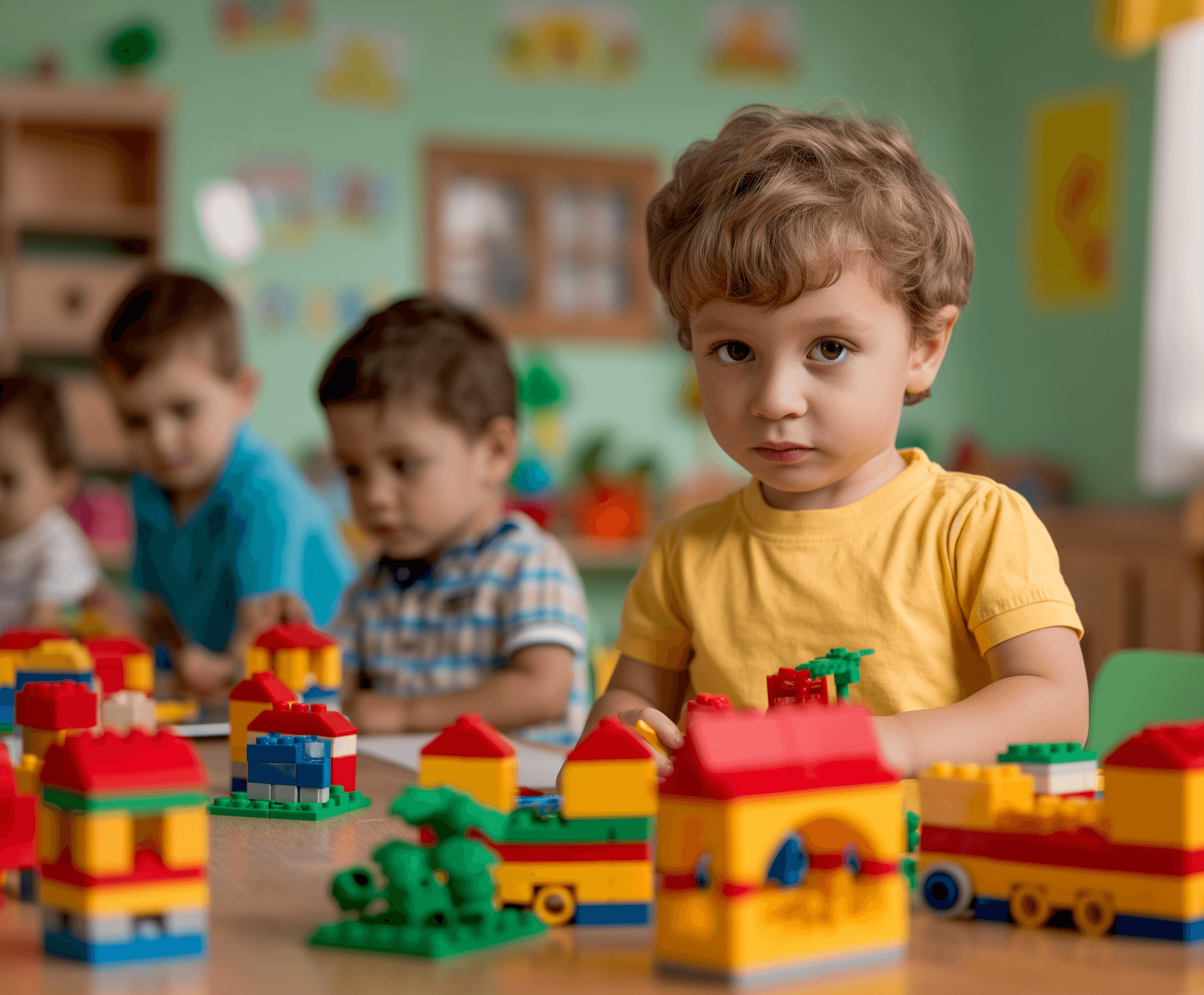Home
How Montessori Education Fosters Creativity and Critical Thinking
Montessori education nurtures creativity and critical thinking through hands-on exploration, open-ended learning, and a balance of freedom and structure.
Written By

Za Sait
Date
11 Mar 2024
Category
Montessori 101
Length

Freedom Within Limits
Montessori classrooms provide children with the freedom to choose activities and work at their own pace within a structured environment. This balance allows them to experiment with ideas, think independently, and explore creative solutions while respecting boundaries. The absence of rigid schedules fosters a sense of ownership and autonomy that sparks creativity.
Open-Ended Materials
Montessori materials are designed to encourage exploration and innovation. Many materials, such as the Pink Tower, Number Rods, or loose parts, have no single “right” way to use them. Children are free to manipulate and experiment with these tools, engaging their imagination while building problem-solving skills.
Encouragement of Imaginative Play
Contrary to the misconception that Montessori education discourages imagination, it actively supports imaginative play rooted in real-life experiences. Children might create stories about animals after observing them or engage in role-playing to understand social dynamics. This approach bridges creativity with reality, enhancing both imaginative and critical thinking.
Mixed-Age Classrooms
The multi-age grouping in Montessori classrooms promotes collaboration and the exchange of ideas. Younger children are inspired by older peers, while older children develop leadership skills and innovative ways to explain concepts. This dynamic fosters critical thinking as children learn from diverse perspectives and experiences.
Focus on Problem-Solving
Montessori materials and activities are designed to challenge children’s thinking. For example, the Cylinder Blocks or Puzzle Maps require children to analyze, compare, and make decisions. Mistakes are embraced as opportunities to refine strategies and deepen understanding, teaching children to approach challenges with confidence.
Hands-On Learning
In Montessori education, learning is experiential. Children use their hands to manipulate materials, observe outcomes, and draw conclusions. This process engages their senses, making abstract concepts tangible and encouraging both analytical thinking and creative problem-solving.
Encouraging Open-Ended Questions
Montessori educators guide children with thought-provoking, open-ended questions such as, “What do you think will happen if…?” or “Can you think of another way to do this?” This approach sparks curiosity, encourages experimentation, and nurtures a mindset of inquiry.
Respect for Individuality
Montessori education honors each child’s unique interests and developmental pace. This respect for individuality encourages children to explore their passions and think creatively without fear of judgment or comparison. By allowing children to follow their own curiosity, Montessori cultivates intrinsic motivation and innovative thinking.
Benefits of Montessori for Creativity and Critical Thinking
Encourages Exploration: Children are free to explore ideas and solutions without rigid constraints.
Builds Confidence: The self-directed approach empowers children to trust their instincts and ideas.
Nurtures Resilience: Mistakes are viewed as learning opportunities, fostering perseverance.
Enhances Collaboration: Working with peers sparks inspiration and shared problem-solving.
Conclusion
Montessori education fosters creativity and critical thinking by blending freedom, structure, and hands-on exploration. It nurtures children’s natural curiosity, encouraging them to think deeply and express themselves imaginatively. These foundational skills prepare children not only for academic success but also for life.




